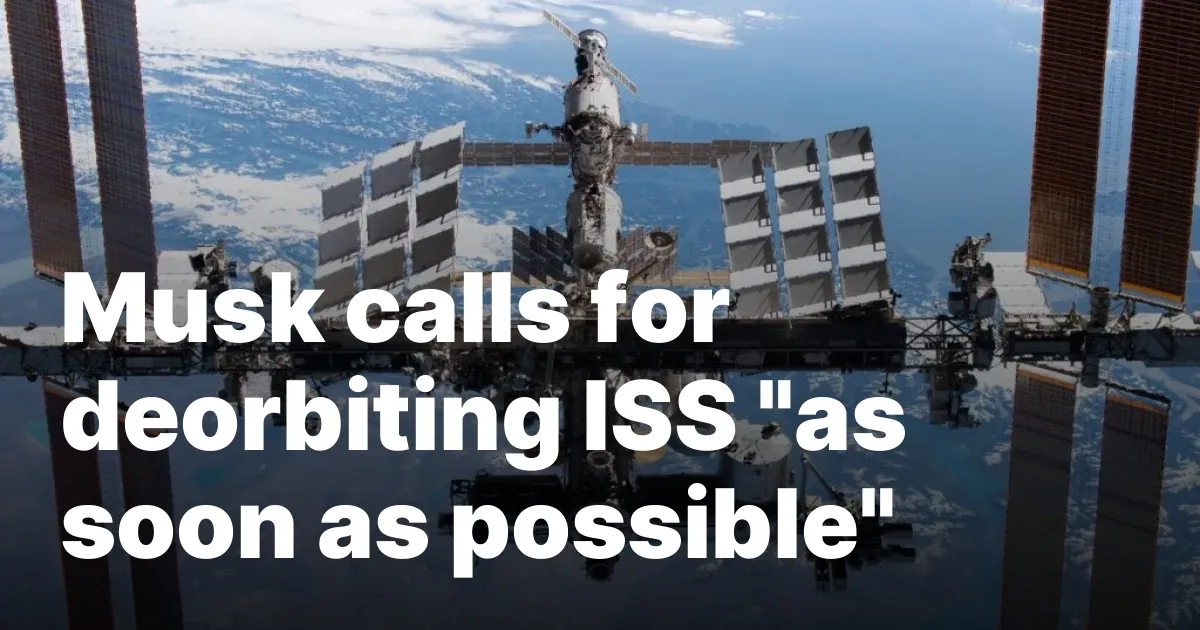
WASHINGTON — In a surprising move, SpaceX Chief Executive Elon Musk has suggested that NASA should deorbit the International Space Station (ISS) within the next two years to prioritize missions to Mars. This statement, shared on social media on February 20, proposes ending the ISS operations years earlier than NASA's current plan, potentially complicating the relationship between Musk and the space agency.
Musk expressed his views on X, the social media platform he owns, stating, "It is time to begin preparations for deorbiting the @Space_Station. It has served its purpose. There is very little incremental utility. Let’s go to Mars." When asked to clarify, Musk confirmed his recommendation for deorbiting the ISS by 2027, rather than NASA's planned 2030 timeline.
The proposal could significantly impact NASA's ISS transition strategy, which involves operating the station until 2030. By then, NASA expects at least one commercial space station to be operational to continue vital research and technology development activities currently conducted on the ISS.
In June 2024, NASA awarded SpaceX an $843 million contract to develop the United States Deorbit Vehicle (USDV), based on the Dragon spacecraft. The USDV is designed to dock with the ISS and perform the final maneuvers needed for a safe deorbit over the South Pacific. NASA aims to have the USDV ready for launch by May 2029, but it is unclear if development can be accelerated to meet Musk's proposed 2027 timeline.
An early deorbit could disrupt relationships with companies and international partners involved with the ISS and its successors. Most ISS partners have committed to the station until 2030, except for Russia, which plans to participate until 2028. This move could also create a gap in the U.S. human presence in low Earth orbit, contradicting NASA's LEO Microgravity Strategy for continuous human presence.
There is skepticism within the industry about the readiness of commercial space stations by 2030. Developers like Vast and Axiom remain optimistic about their timelines, but key members of Congress, including Sen. Ted Cruz, emphasize maintaining a continuous U.S. presence in LEO. The significant investment in the ISS, over $100 billion, further supports the need for a careful transition.
The reasons behind Musk's call for an early ISS deorbit remain uncertain. SpaceX is a crucial player in supporting ISS operations, providing transportation for astronauts and cargo. Musk's comments followed a dispute with European Space Agency astronaut Andreas Mogensen, who criticized Musk for making unsupported allegations about NASA's handling of astronauts.
Musk's response to Mogensen included harsh language and claims of proposals to return astronauts sooner, which have not been substantiated. Shortly after this exchange, Musk posted his recommendation for early deorbiting of the ISS on social media.